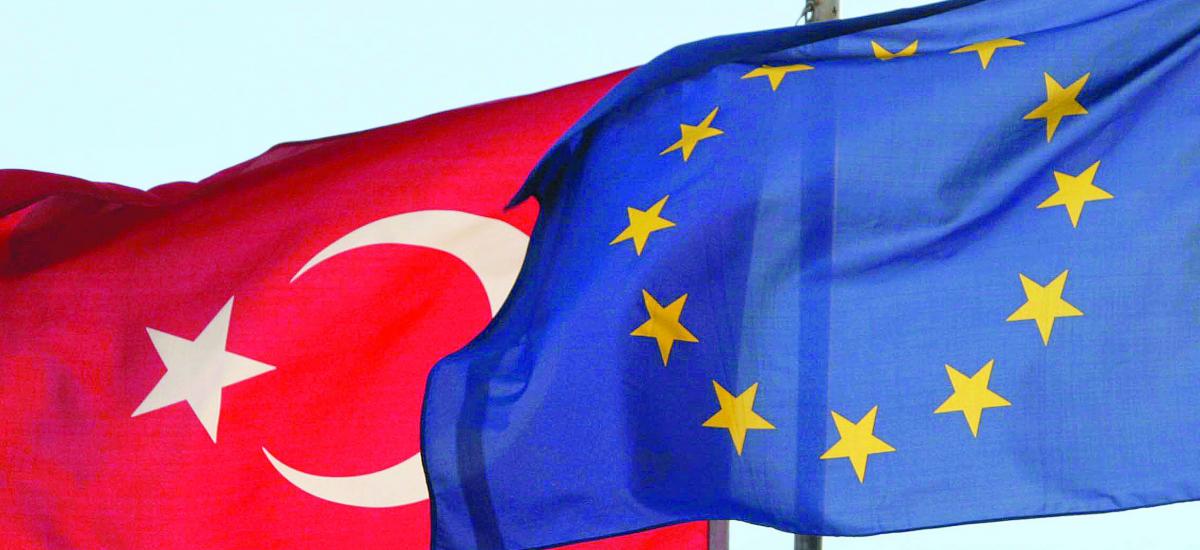Germany’s presidency of the Council of the European Union, which started on July 1 and will last for six months, constitutes a glimmer of hope for Turkey to straighten out its relations with the EU, thanks to relatively strong ties between the two countries.
But Ismail Ertuğ, member of the Social Democratic Party of Germany and the European Parliament, told Ahval that Turkey’s positive expectations, should it harbour them, may be in vain because the priorities of Germany and Chancellor Angela Merkel lie elsewhere.
“Merkel presented her program at the European Parliament and she never mentioned Turkey, not once. So, in the light of her speech, it is interesting to raise such expectations,” Ertuğ said.
Merkel said on July 8 that the German presidency, under the motto “Together for Europe’s recovery”, was set on tackling the huge challenges posed by the COVID-19 pandemic. She highlighted five areas that Europe needed to work on if it wanted to emerge unified and strong from the crisis; namely fundamental rights and freedoms, solidarity and cohesion, climate change, digitisation and Europe’s role in the world.
“When we look at Turkey from Europe, we see that the majority of fundamental rights and freedoms are abolished,” Ertuğ said. “We see that the judiciary is not independent and the situation is deteriorating daily.
“Therefore, the EU does not discuss Turkey because we cannot see any improvement or anything that can be considered positive that we can appreciate and support,” he said.
Turkey’s EU membership talks have proven a drawn out process that have put Ankara and Brussels at political and diplomatic loggerheads for years. Negotiations on full membership began in 2005, but Turkey has made slow progress towards meeting the accession criteria.
Following a failed military coup against Erdoğan’s Justice and Development Party (AKP) government in 2016, the bloc froze the membership process, citing serious concerns about human rights and the rule of law.
On March 24, the EU General Affairs Council resolved to open membership talks with North Macedonia and Albania as part of the bloc’s enlargement plans. Turkey was not mentioned, Ertuğ said.
Tensions between Turkey and the EU have recently escalated over Ankara’s drilling for hydrocarbons around EU member Cyprus in the eastern Mediterranean, which has been deemed illegal by the bloc.
“Ankara’s policies in the eastern Mediterranean further cool already ice cold relations with the EU. But I also have to say that the EU cannot make a proposal and tell Turkey ‘Come, let’s solve this issue'” Ertuğ said.
He said lack of foreign policy agreed by EU member states creates a vacuum that countries like Turkey exploit to pursue their geopolitical ambitions.
“Turkey did this in Syria, now it is doing it in Libya. But so long as the EU is unable to make an offer, it somehow goes down in history as being guilty for the collapse of relations with Ankara.”
However, Ertuğ said the EU, notably the social democrats and socialists at the European Parliament, do not want to lose Turkey. He cited Turkey’s customs union with the EU, which the bloc has postponed updating, as an area in which they want to see progress.
“As European socialists, we receive a lot of criticism,” Ertuğ said. “Europe’s social democrats do not want to lose Turkey despite its oppressive regime.
“We are trying to take steps to open up the customs union for discussion. Our hand would strengthen if Turkey improved its human rights record rather than attempting to silence social media,” he said.
If Turkey takes steps to strengthen democracy, the EU will “immediately respond positively and constructively”, he said. Ankara’s distancing itself from fundamental rights and freedoms is also crippling its economy, he said.
Last year, German automotive giant Volkswagen began preparations to build a car plant in the western Turkish province of Manisa, starting work on the land allocated to it by the Turkish government free of charge.
Following months of foot-dragging, Volkswagen said this month it would not build the 1.3 billion-euro factory, citing a slump in demand caused by the COVID-19 pandemic.
“There is no investment where there is no trust in justice,” Ertuğ said. “Volkswagen considered Turkey seriously. However, they had faced serious pressures and Volkswagen officials had to reconsider their decision.”








































admin in: How the Muslim Brotherhood betrayed Saudi Arabia?
Great article with insight ...
https://www.viagrapascherfr.com/achat-sildenafil-pfizer-tarif/ in: Cross-region cooperation between anti-terrorism agencies needed
Hello there, just became aware of your blog through Google, and found ...